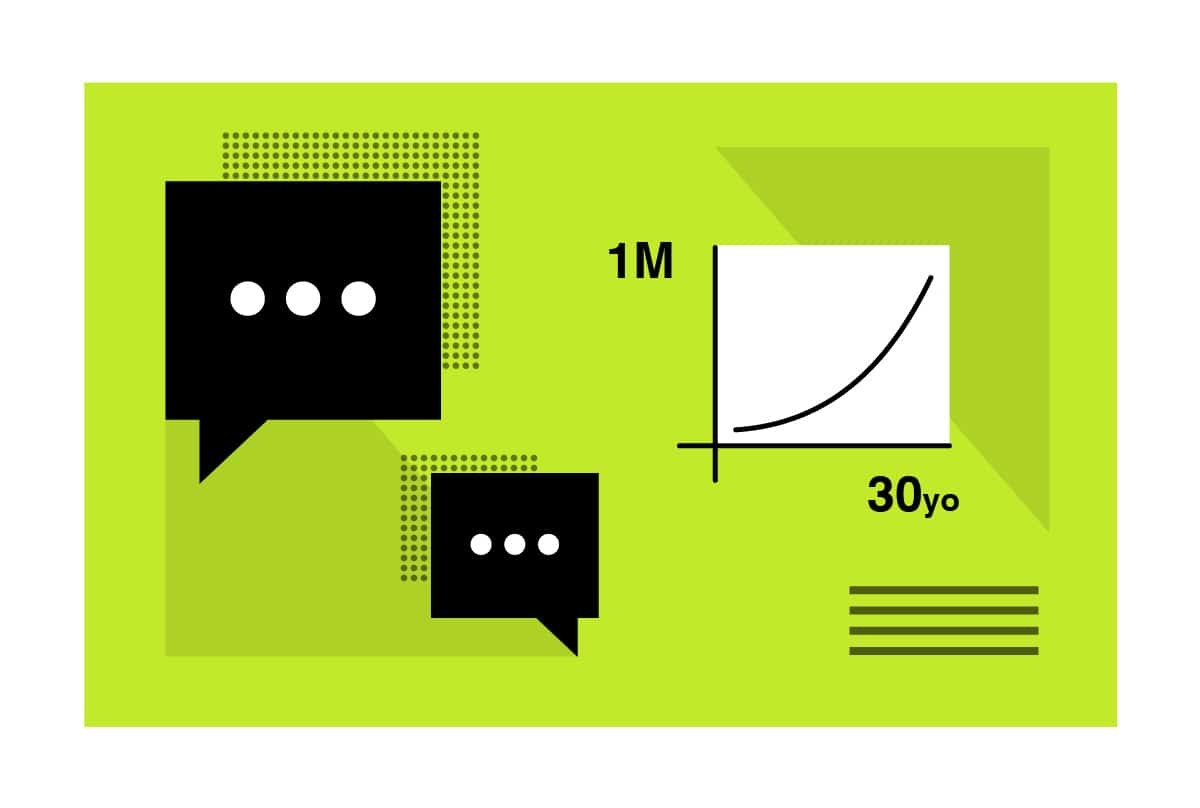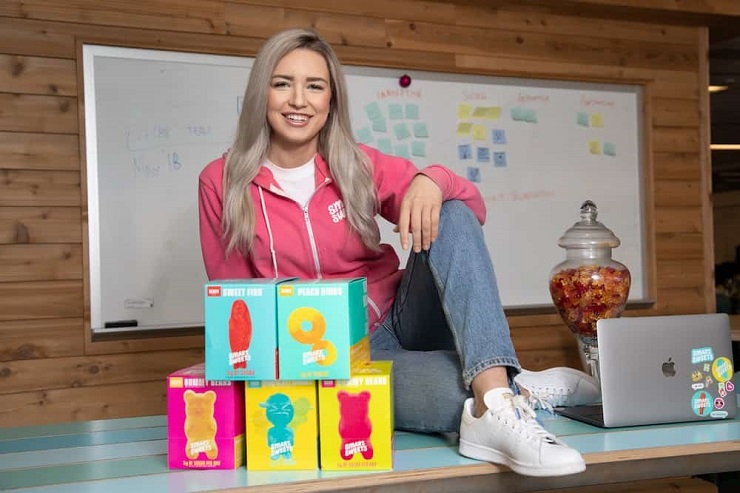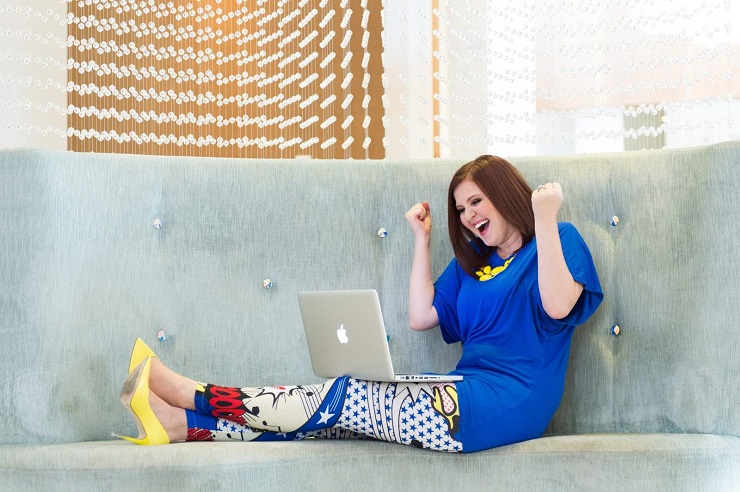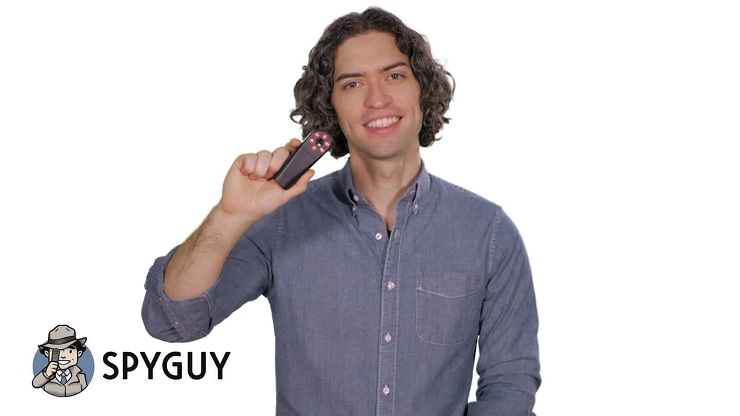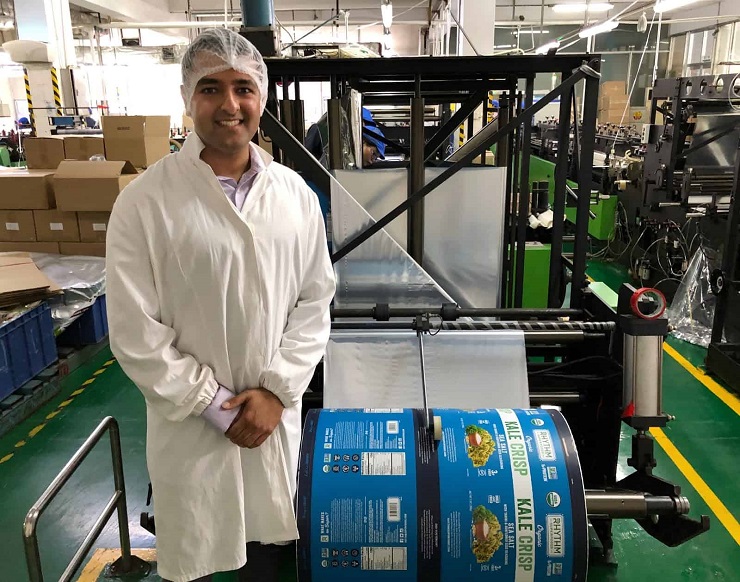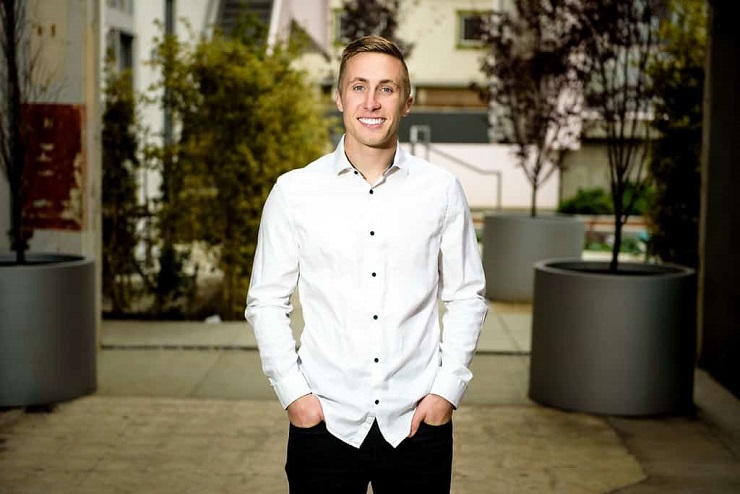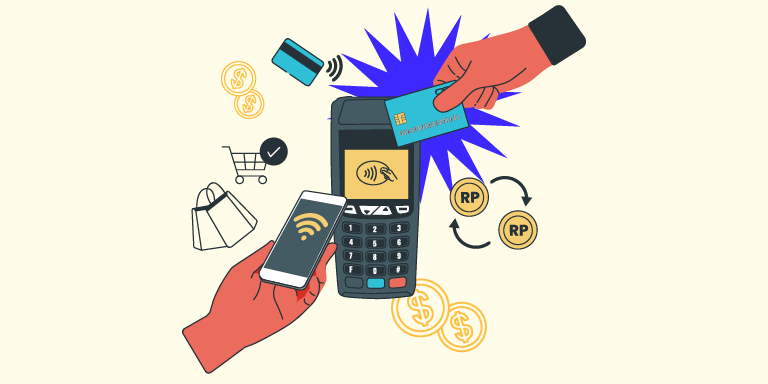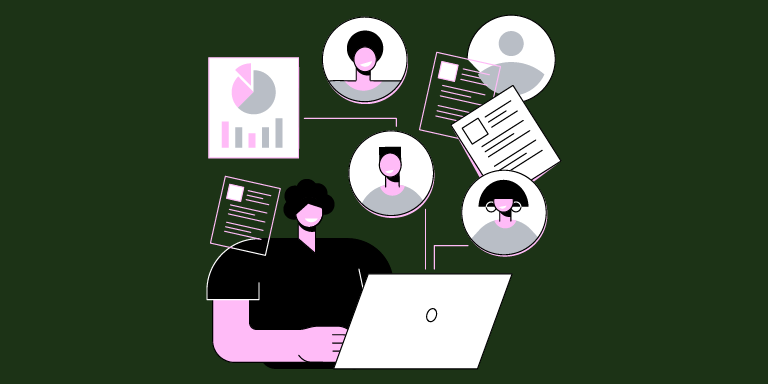It’s the arbitrary—yet impressive—milestone most aspiring founders only dream of reaching: $1 million in annual revenue. Yet these entrepreneurs did it before they even blew out the candles on their 30th birthday cakes.
Below, I’m going to introduce you to a few of the youngest CEOs to hit that coveted million-dollar mark, and invite them to give you the best advice they’ve learned along the way.
Tara Bosch, SmartSweets
On her way home from school as a child, Tara Bosch would stop by the gas station to pick up her favorite treat: penny candy. She estimates that she was consuming 70 grams of sugar per day from candy alone. As she got older, this self-described “candy addict” realized she had a problem.
“The excess sugar consumption turned into an unhealthy relationship with food,” she explains, “which led to self-esteem and body image issues.”
But trying to kick her candy addiction only intensified her cravings for sugar. After a conversation with her grandma, who shares her love for sugar, Bosch wondered if there was a way for them to enjoy candy while decreasing their sugar intake.
Armed with a gummy bear mold she bought from Amazon, Bosch started recipe testing in her kitchen in Vancouver, Canada. Those were the humble beginnings of SmartSweets, a company that sells low-sugar candy. So what makes their sweet treats sweet? Stevia leaf extract. Their Sweet Fish candy contains 92% less sugar than traditional candy fish.
In 2016, the year they launched, SmartSweets hit $1 million in revenue.
“It was a cool moment,” Bosch, now 25, recalls, “though even more meaningful was that the momentum validated the hypothesis of people wanting to enjoy the candy they know and love, without the sugar.”
Today, SmartSweets can be found in more than 18,000 stores in the U.S. and Canada, and the company has 49 team members. In 2019, SmartSweets is on track to exceed $55 million in its third fiscal year profitably.
Tara Bosch’s Advice to Entrepreneurs Who Want to Reach $1 Million
“You are capable. Instead of asking, ‘Why me?’, begin asking, ‘Why not me?’”
Amanda Goldman-Petri, Market Like a Nerd
It could have all ended for Amanda Goldman-Petri when, just before starting her freshman year on a full-ride scholarship to Johns Hopkins University, a speeding minivan hit her as she crossed the street, leaving her with a broken femur, a cracked skull, and little chance of survival.
But she survived, and it wouldn’t be the first time she beat the odds. After overcoming abuse and poverty as a child, Goldman-Petri developed a fighter’s spirit that would be key to her success as an entrepreneur.
She spent months learning to walk again and then continued to Johns Hopkins, where she studied neuroscience for a year and a half before graduating with seven honors and three degrees in writing, Chinese, and Russian.
“My soul is always craving to learn and experience new things,” says the 29-year-old founder of marketing firm Market Like a Nerd.
Goldman-Petri started her first business at 21, though she describes the venture as a “financial failure.” While she was able to build name recognition, secure partnerships, and grow her email list, in the end, she didn’t know how to use that to generate revenue. By age 27, she hit the seven-figure revenue mark with Market Like a Nerd after working with seven-figure mentors, testing different funnels and business models, and partnering with other businesses.
So how did it feel to reach $1 million in revenue? Perhaps not as life-changing as one might expect.
“Growing up poor, when I imagined a millionaire, I imagined mansions, yachts, butlers, private chefs, personal drivers, and more,” Goldman-Petri says. “As a seasoned business owner, I now know that $1 million in revenue is drastically different than $1 million in profit or $1 million in net worth. I’ve hit the $1 million in revenue. The next step is $1 million in profit, and we’ll see how that feels!”
Even so, getting to where she is now took a healthy dose of that fighter spirit. She admits there were many times when she became frustrated at how long it was taking her to achieve her goals.
“After years of abuse, trauma, and near-death, I am resilient,” she says. “I took it one day at a time. I stopped visualizing the future I craved and began focusing on the actions I needed to take in the present to get there.”
And as if running a seven-figure business isn’t enough, Goldman-Petri is also an actress who’s landed roles in a Netflix film, an off-broadway show, and a reality TV show. Soon, she’ll be moving to Los Angeles to pursue her acting career further.
Amanda Goldman-Petri’s Advice to Entrepreneurs Who Want to Reach $1 Million
- Embrace team. You will need partners, employees, contractors, mentors, and more to support you. You cannot do it alone.
- Upgrade your network. Surround yourself only with business owners who have already hit $1 million/year or more. Talking to them will help you see how possible it really is and, because they’ve already done it, they’ll believe that you can too. That belief is contagious.
- Remove distractions and toxicity. It takes massive amounts of focus and belief to get these types of results in your business. You can’t afford drama.
- Embrace trial and error. What it takes to get to six figures won’t get you to seven figures. Be prepared to throw your business model out the window over and over again until you find the one that works.
- Be prepared for personal growth. You will need to become a leader. You’ll need to work on your risk tolerance. You’ll need to work on your time management skills, your delegation skills, your money management skills, and so much more. It all requires constant personal development.
Allen Walton, SpyGuy
In 2009, while most of his peers were studying for exams, Allen Walton was playing a lot of World of Warcraft. “I wasn’t in college because my grades were terrible,” he says.
But one day, while eating at a pancake place with his family, he saw a surveillance shop next door, and his mom made him apply for a job. Walton started working in sales at the shop, where he learned the ins and outs of the industry. About two years later, the reality show Cheaters hired him to start the same kind of company, which he did, but this time, he made it an online store.
In 2014, after having a falling out with one of the guys he’d partnered with on the show and reading Tim Ferriss’ The 4-Hour Workweek, Walton launched his own store, SpyGuy. In its first full year of business, the online store reached $1 million in revenue. In 2018, SpyGuy had its best year ever.
In 2019, Walton launched his first product SpyGuy-created product, Scout, a device guests can use to detect hidden cameras in their Airbnbs. From there, the 32-year-old plans to double down on creating more of his own products.
Allen Walton’s Advice to Entrepreneurs Who Want to Reach $1 Million
“Don’t focus on the money; focus on solving people’s problems through great products or services. When you’re providing awesome value, the money follows.”
Apurva Batra, FlexiblePouches
It didn’t take long for Apurva Batra to realize he wasn’t cut out for the 9-to-5 lifestyle. On the first day of his first college internship at a major oil and gas company, Batra became disillusioned with the corporate world.
“I was instantly turned off by the idea of coasting down a predetermined path for the next 40 plus years,” he says.
He continued his engineering education and career, but always in the back of his mind was this desire to start his own business. He knew his ideal business would:
- Be B2B
- Have repeatability of sales
- Be scalable
If he wanted to launch a business before 30, Batra, now 29, knew that he needed to just pick an idea and go for it. He decided on film-based packaging for consumer goods.
To learn about the industry, he found relevant contacts on LinkedIn and cold-called them, offering to be a prospective sales agent. By touring packaging facilities under the guise of a sales agent, he gained an understanding of both the business and technical sides of the industry. Less than a year later, he quit his job to build FlexiblePouches.
Within the first 12 months of working on FlexiblePouches full time, he hit more than $1 million in annualized sales, and at this point, he was still a one-man show with no employees.
How did he do it on his own? “Staying laser focused on growing revenues and managing costs,” he says.
Additionally, as a solopreneur, Batra had to become a Jack of All Trades, doing his own marketing, sales, accounting, customer service, and more. He credits automating processes, such as online invoicing services, for helping to make this feasible.
Today, FlexiblePouches has five full-time and contract employees and is expecting to log $2.5 million in revenue for 2019.
Apurva Batra’s Advice to Entrepreneurs Who Want to Reach $1 Million
“Focus on numbers, numbers, numbers. I can’t stress enough how the only thing that matters is sales versus expenditures.”
Chandler Bolt, Self-Publishing School
Ever since he was a child, Chandler Bolt knew he wanted to be an entrepreneur. But while attending the College of Charleston, he realized a college education wasn’t necessary to reach that goal.
“I was tired of learning how to run a business from professors who had never ran a business,” he says.
So he dropped out to work on a company he says was “totally failing.” All of his bank accounts were negative, and he’d borrowed $15,000 from friends and family to get his business off the ground, but even that injection of cash couldn’t save it.
Meanwhile, Bolt had already written and published two books that were earning him passive income, and he’d helped a friend with a book. People kept asking him about the publishing process, and that’s when he realized which business he should be pursuing. Those people ended up becoming his first paying customers who kicked off Self-Publishing School, an online education company that helps people write and publish books in as little as 90 days.
In 2015, he took his company from zero to $1.1 million in revenue. Bolt says they expect to close out 2019 at over $6 million.
Today, the college dropout and self-professed “bad writer” is the author of six bestselling books, and Self-Publishing School has been named by Inc. Magazine as one of the 5,000 fastest-growing private companies in the U.S. for two years in a row.
Bolt, now 26, isn’t resting on his laurels though. He says Self-Publishing School is on a mission to help 120 million people by getting 100,000 books published.
“I believe that business is the best vehicle for positive change,” he says.
His favorite Self-Publishing School story thus far is that of Emma Sumner, who published a 120-page fairytale book at just 8 years old using the system that Bolt teaches.
“We’ve had so many other kids that are publishing books, and it’s all because Emma kind of kicked off this movement, which is just unbelievable.”
Chandler Bolt’s Advice to Entrepreneurs Who Want to Reach $1 Million
- Fail fast, fail forward, fail often. This is one of our core values at Self-Publishing School, and something that I think is so important. Without failure, you have zero chance to succeed, and the best learning comes through failing.
- Sell something. Until you have sales, you don’t have a business, you have a business idea. So you need to learn sales, you need to learn marketing, and you need to sell a product.
Will You Join the Ranks of the Youngest CEOs of Seven-Figure Companies?
I hope that reading the stories of what these young CEOs were able to achieve inspires you to get to work on your great idea. If you need more inspiration, check out our articles, How to Start a Startup and How to Use Extrinsic and Intrinsic Motivation to Start Your Business.
While combing through the answers of these five founders, there were some common threads:
- They learned from those who had already achieved what they wanted to achieve. Goldman-Petri worked with seven-figure coaches before hitting seven figures in her business; Batra toured packaging facilities to understand the industry before starting FlexiblePouches; and Walton worked at a surveillance shop to learn the ins and outs of the field before starting SpyGuy.
- They didn’t let failure stop them. Both Bolt’s and Goldman-Petri’s first businesses were failures by their own admission. But they still persevered and ended up founding seven-figure companies.
- Money wasn’t their ultimate goal. This one is huge because this entire piece was framed around how much annual revenue these businesses were able to reach ($1 million plus). But most of the founders I interviewed pointed out a driving factor that wasn’t monetary at all. For Bolt, he believes in helping people share their stories with the masses through self-publishing. For Bosch, she wants to help people kick their sugar habit while still feeling good about candy. It may seem counterintuitive, but if you want to make the big bucks, find a purpose that isn’t rooted in money.
Lastly, I want to add that even if you’re far past 30 years old, do not feel discouraged. The point of this piece is not to make you think there’s some magic number you have to hit before your 30th birthday. It’s merely to offer some inspirational examples of people who rose to success rapidly.
If you need some inspiration from entrepreneurs who started late, Robert Noyce was 41 when he co-founded Intel, and Vera Wang opened her first bridal salon at 40.
That’s the beautiful thing about entrepreneurship: You’re never too young nor too old to start. No matter your age, it’s better to start your business now than never to do it at all.
